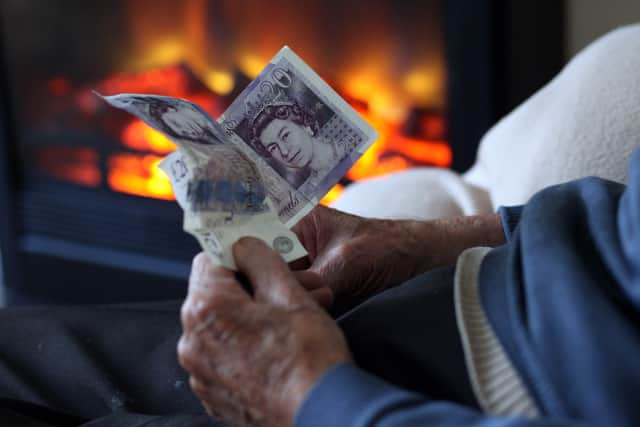UK state pension: half a million retired people could be forced to pay income tax next year as payments rise
and live on Freeview channel 276
More than half a million retired people could be dragged into the “tax net” next year because of rising payments.
The state pension could be worth over £200 a week in 2023 if inflation stays high. While high payments will help with the cost of living crisis, it could push thousands of retirees into paying more tax.
Advertisement
Hide AdAdvertisement
Hide AdFormer Liberal Democrat pensions minister Sir Steve Webb, who is now a partner at pensions specialists LCP (Lane Clark & Peacock), said frozen income tax thresholds, combined with pension increases next year, could lead to fresh tax bills for pensioners.


What tax bills could pensioners be hit by?
LCP looked at HM Revenue and Customs (HMRC) figures to make the estimates. It said that in April 2022 the state pension rose by only 3.1%. Yet as income tax thresholds were frozen, the number of over-65s paying tax rose by 390,000 between the financial years 2021-22 and 2022-23.
With a much larger pension increase expected in April 2023, a bigger jump in the number of over-65s paying tax is expected.
The current maximum new state pension is £185.15-a-week. The amount rises annually in April based on the previous September’s inflation figure.
Advertisement
Hide AdAdvertisement
Hide AdInflation is currently 9.9%, and if it stays at that, the state pension would rise to £203.47-a-week. But inflation could go higher and that means the amount could be more.
LCP calculations suggest this is likely to see at least half a million more being added to the total, based on the current rate of inflation. LCP said that many work pensions, separate from the state pension, will be increased because of inflation too. Although the exact rules will depend on the type of pension you have.
What has been said?
Former Liberal Democrat pensions minister Sir Steve Webb said: “Freezing tax thresholds is a stealthy way of raising tax at the best of times, but at a time of soaring inflation, freezing thresholds has a profound effect. During this Parliament we have already seen over a million extra pensioners dragged into the tax net, and next April’s increase is likely to add at least half a million more.
“If the Chancellor is looking for ways to cut taxes and ease cost of living pressures on those on modest incomes, he could do worse than review the long-term freeze of income tax allowances.”
Advertisement
Hide AdAdvertisement
Hide AdMeanwhile, a Treasury spokesperson said: “Over the last decade we have increased the personal allowance people have before they pay any income tax from £6,475 in 2010 to £12,570 today. This has lifted millions of the poorest out of paying any income tax at all, and meant a real-terms tax cut of £750 for 27 million people.
“The vast majority of taxpayers will still pay the basic rate and the UK still has the highest personal allowance in the G20.”
Comment Guidelines
National World encourages reader discussion on our stories. User feedback, insights and back-and-forth exchanges add a rich layer of context to reporting. Please review our Community Guidelines before commenting.
